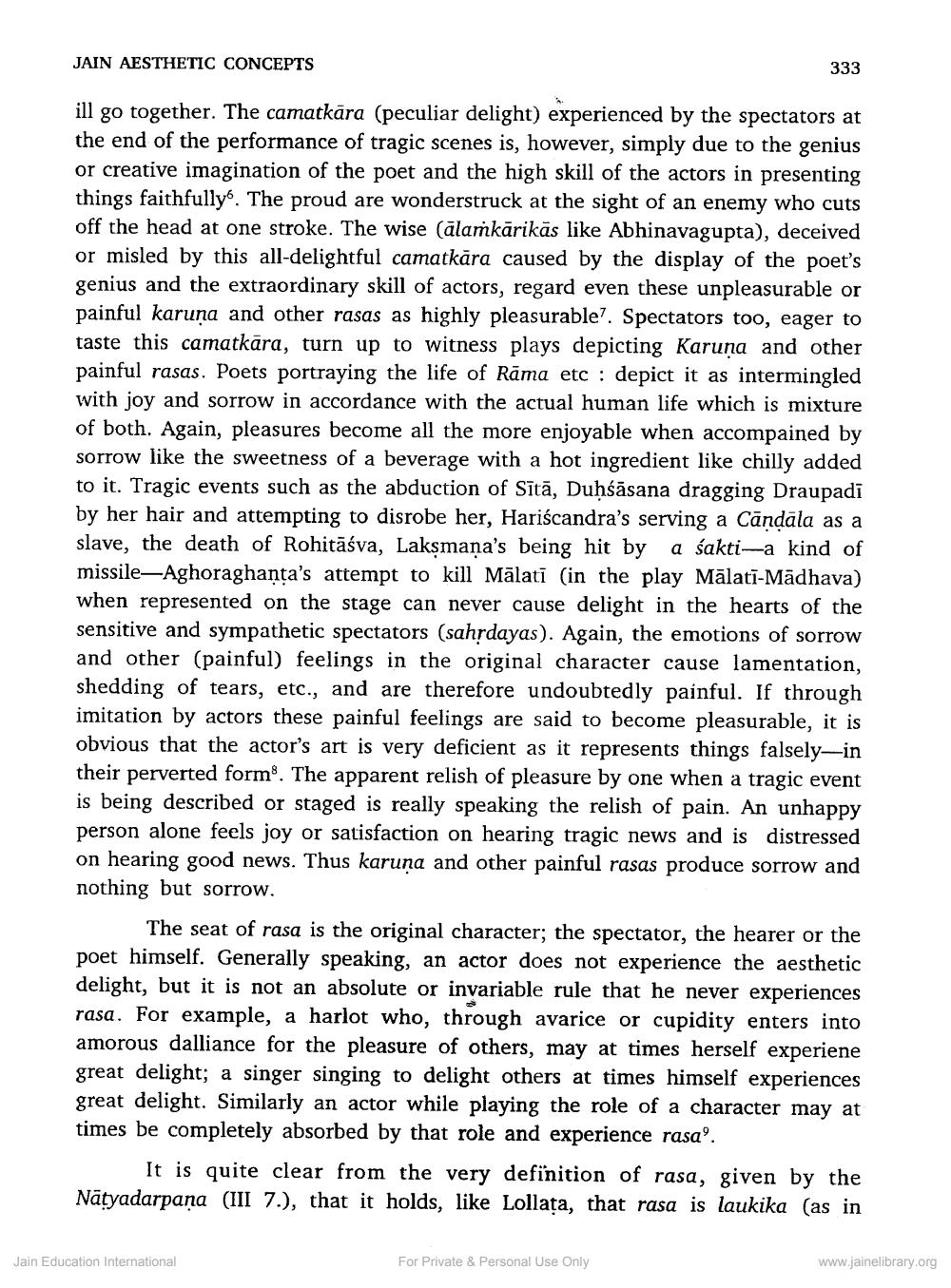________________ JAIN AESTHETIC CONCEPTS 333 ill go together. The camatkara (peculiar delight) experienced by the spectators at the end of the performance of tragic scenes is, however, simply due to the genius or creative imagination of the poet and the high skill of the actors in presenting things faithfully. The proud are wonderstruck at the sight of an enemy who cuts off the head at one stroke. The wise (alamkarikas like Abhinavagupta), deceived or misled by this all-delightful camatkara caused by the display of the poet's genius and the extraordinary skill of actors, regard even these unpleasurable or painful karuna and other rasas as highly pleasurable?. Spectators too, eager to taste this camatkara, turn up to witness plays depicting Karuna and other painful rasas. Poets portraying the life of Rama etc : depict it as intermingled with joy and sorrow in accordance with the actual human life which is mixture of both. Again, pleasures become all the more enjoyable when accompained by sorrow like the sweetness of a beverage with a hot ingredient like chilly added to it. Tragic events such as the abduction of Sita, Duhsasana dragging Draupadi by her hair and attempting to disrobe her, Hariscandra's serving a Candala as a slave, the death of Rohitasva, Laksmana's being hit by a sakti--a kind of missile-Aghoraghanta's attempt to kill Malati (in the play Malati-Madhava) when represented on the stage can never cause delight in the hearts of the sensitive and sympathetic spectators (sahrdayas). Again, the emotions of sorrow and other (painful) feelings in the original character cause lamentation, shedding of tears, etc., and are therefore undoubtedly painful. If through imitation by actors these painful feelings are said to become pleasurable, it is obvious that the actor's art is very deficient as it represents things falsely-in their perverted form. The apparent relish of pleasure by one when a tragic event is being described or staged is really speaking the relish of pain. An unhappy person alone feels joy or satisfaction on hearing tragic news and is distressed on hearing good news. Thus karuna and other painful rasas produce sorrow and nothing but sorrow. The seat of rasa is the original character; the spectator, the hearer or the poet himself. Generally speaking, an actor does not experience the aesthetic delight, but it is not an absolute or invariable rule that he never experiences rasa. For example, a harlot who, through avarice or cupidity enters into amorous dalliance for the pleasure of others, may at times herself experiene great delight; a singer singing to delight others at times himself experiences great delight. Similarly an actor while playing the role of a character may at times be completely absorbed by that role and experience rasa'. It is quite clear from the very definition of rasa, given by the Natyadarpana (III 7.), that it holds, like Lollata, that rasa is laukika (as in www.jainelibrary.org Jain Education International For Private & Personal Use Only




